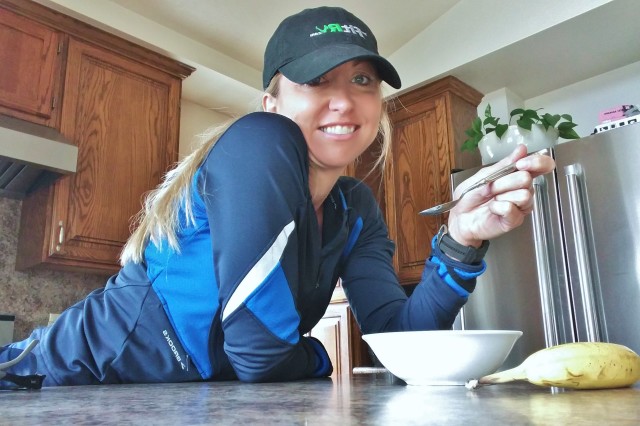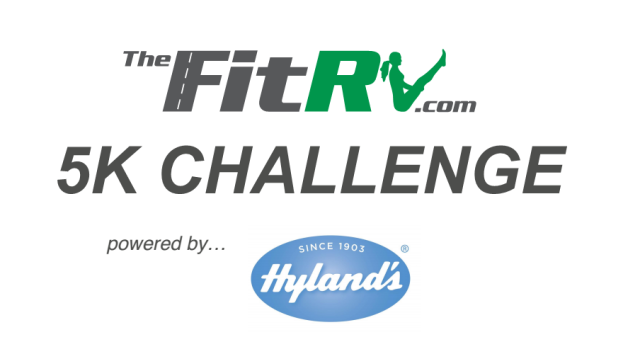This post may contain affiliate links.
 In conjunction with our Fit RV 5k Challenge that’s going on through Thanksgiving 2015, you might have noticed I’ve been writing weekly running tips to help improve your training. This week, it’s all about eating before your run.
In conjunction with our Fit RV 5k Challenge that’s going on through Thanksgiving 2015, you might have noticed I’ve been writing weekly running tips to help improve your training. This week, it’s all about eating before your run.
Have you ever headed out the door for a run right after eating a huge heavy meal? I have, and it isn’t pretty. Between the cramps and the feeling that there’s a giant watermelon bobbing around in your stomach, it makes for a rather miserable run. There’ll be no PRs happening on those days…
Whether you’re a seasoned runner or a newbie, fueling adequately plays a big part in how well your run will go. And since everybody’s a little different, it gets a little complicated. Let’s try to make some sense of it all.
How soon should I eat before a run?
This depends on you and your tolerance level. James, for example, can’t handle anything heavy an hour or longer before a run. He pretty much needs his stomach empty to run comfortably. Not me. I can eat a light snack 15 minutes before with no problems. As a general rule, try to time your normal meals or snacks so that they fall 30-90 minutes before your run. If it’s going to be a long, hard workout, eat more and push it even farther away from your run, so you’ll have more time to digest. Your stomach will let you know if you’ve eaten too much too close to your run. When it does, make note of it, and change it next time.
Should I eat more than normal?
Don’t overestimate your nutritional needs before a run. Most of us don’t need any extra calories beyond our normal diet, especially if we’re just jogging a few miles. Your body has enough glycogen stored in the muscles from your normal eating habits to jog at your steady state pace for easily over an hour. I can’t tell you how many of my training clients have actually GAINED weight once they started running, due to overestimating how much they should eat. While I wish it did, jogging a few miles doesn’t give you a pass to eat bigger portions throughout your day. The only time you might need to eat a little more calories than normal are hard and long training sessions.
What’s the best pre-run nutritional plan?
While there isn’t one perfect food out there, my best advice to you is to look for easily digestible foods, and what I digest easily might be difficult for you, so it’s very individualized. You want to avoid fatty or high fiber foods (like beans, broccoli, apples), because they’ll sit in your stomach and are harder to digest. Here’s a real-life example. I eat eggs frequently for breakfast. I love them. There’s so much nutrition in the yolk, and they’re a great source of protein. But, eggs are one of those foods I have a hard time digesting…sitting there like a rock in my gut for hours after eating. This is good in a way, because it ensures I won’t do any post-breakfast snacking, but bad if I have any physical activity planned. If I know I’m going running within a couple hours of breakfast, there’s no way I’d choose eggs that day. Oatmeal with fruit and nuts, or maybe a green breakfast smoothie, are more commonly my go-to breakfast options on post-breakfast run days because I know I digest them easier. They make my run much more pleasant and productive. And since we’re talking about a meal and not a snack, it would be at least an hour before I hit the pavement. Sure, I can run right after having a small snack, but a whole meal is another story. The more you run, the more you learn what foods work best for your body.
Also, make sure you include water in your pre-run plan! You should drink 12 to 16 ounces an hour before your run, and bring water with you if you’re going longer than 30 minutes.
It boils down to this. If you eat smart, you’ll run strong. Strong running is happy running!
Don’t forget to check out the Fit RV 5k Challenge! Win prizes in the Sweepstakes Giveway, and follow the 5k weekly training plans here:












